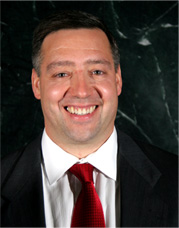Financial Advisor Brian Raleigh Discusses Four Things You Should Know About Trusts

Cary, NC – October 30, 2012 – Brian Raleigh, Founder of TruWealth Strategies in Cary, North Carolina, recently explained four important things everyone should know about trusts. “There are four basic things that are essential in figuring out if a trust is right for you or if the trust you already have is doing it’s job,” remarked Brian Raleigh.
Brian continued to explain the four important things to know about trusts:
There are many types of trusts, but the most basic is a revocable trust, sometimes referred to as a living trust. A revocable trust is advisable when you have after-tax accounts (not your IRA’s, 401K’s, 403B’s or other pre-tax retirement plans), and you do not want them to go through probate. A revocable trust directs your estate privately, so there is neither a public announcement nor a judge involved in making sure your estate is settled without debt. A revocable trust can also distribute money over time, if your goal is to spread distribution to your family for many years after you pass away. Many times we see trusts distributed this way when the grandchildren are young. So as you can see, the benefits of using a revocable trust can be great. Revocable trust owners need to be aware that if they become disabled their successor trustee must follow their instructions. In essence, the trust can be revoked or changed by you, but your child who takes over in the event you are disabled does not have that same flexibility.
What to watch out for: The biggest possible misstep with a revocable trust comes when you, as the grantor of the trust, become disabled and your adult child takes over when there is language specific to healthcare and your direction to pay for that care from your trust. In this situation, any protection of your assets from long-term care that your child could have used to protect your hard-earned dollars from a medical spend-down is lost.
Irrevocable trusts can have many strings attached. You need to know what those are before you enter into an agreement that cannot be changed without court involvement. Irrevocable trusts are great for holding life insurance outside of your taxable estate, if you have no intention of getting to your cash value in the future. Some irrevocable trust planning makes sense when certain types of real estate are involved. Experienced Elder Law Attorneys know how to create hybrid trusts that offer some of the desirable benefits of an irrevocable trust while offering more flexibility and less problematic strings attached.
You cannot wrap a trust around your IRA. Your IRA is a pre-tax asset, and it is directed at your death by beneficiary designations. It is critical that you keep a copy of your beneficiary designation form with your legal documents. In the event you die and the custodian cannot find your IRA beneficiary designation, your IRA is paid to your estate and ends up becoming a probate asset that goes through the full process of probate. This cost and delay of probate can easily be avoided by maintaining a copy of your IRA beneficiary designation form.
In many situations trusts make sense, but if the trusts are not funded, the benefits are lost. All too often a person seeks out the least expensive trust option desiring value for their money but end up getting absolutely nothing for their money. Once you have a trust, you must link it to the accounts you want governed by the terms and conditions of your trust (could be revocable or irrevocable). For instance, if you have a CD at Happy People’s Bank for $100,000, and you want it to be distributed to your family through your revocable trust but the statement comes – and it is your name on the account registration – then none of the benefits of the trust are realized. The CD will go through probate and the instructions you left behind after your death will be ignored. Funding a trust is not hard, but you need to take the time to make sure all the institutions that hold your money have a copy of the trust that reflects the proper ownership of your assets to the trust and not to you, in your name individually, or jointly, if married.
Brian also stressed the importance of getting the opinion of an advisor who can confirm for you that the assets you own are in fact properly wired to your trust. “Take some time to discuss your trust planning options and when you decide they are right for you make every effort to ensure they are properly attached to your assets that you ultimately want to go to family members you love,” said Raleigh.
For more information on how Brian Raleigh can help, please visit www.truwealth.us
About Brian Raleigh:
Brian began as an advisor in November of 1995 and spent more than eight years where he often ranked in the top 1 percent in his company. In 2004, he became an independent advisor and formed his own firm, TruWealth Strategies in Cary, NC.
In addition to keeping his clients satisfied, Brian’s proud to be finishing up a book. Keeping with his sports background, the book is titled, “Rounding Third and Heading for Home.” It’s due out this summer and discusses mistakes people can’t afford to make when they retire. He also reveals strategies on how to lower taxes, manage market risks, and create a consistent income stream in retirement that never runs out!
Brian obtained his LUTCF in 1999, with a focus on Estate and Business Planning. He is also a member of the Better Business Bureau and National Ethics Bureau. Brian is an active member in the Raleigh Association of Insurance and Financial Advisors (RAIFA), where he served on the board for four years, and is a member of NAIFA the National Association of Insurance and Financial Advisors since 1997.
